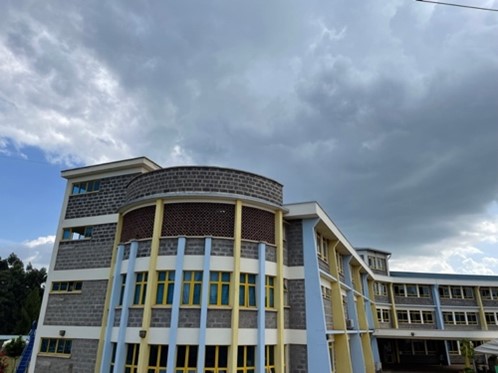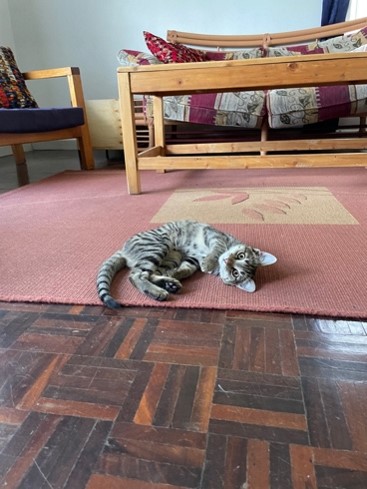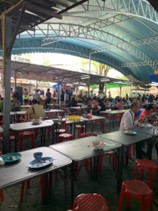“Halo” all the way from Edinburgh, Scotland, where the charming cobblestone streets intertwine with the striking architecture. A haven for those who love a wide array of tartans, kilts, and hairy heilan coos (as the Scots would say!), or a place that is straight out of a storybook where the sound of bagpipes mixed with seagulls is omnipresent. I mean, Scotland’s national animal is the unicorn as the Scots believed that the unicorn was the natural enemy of the lion. It does not get more fairytale-like than that! Can you tell that I am obsessed with Scotland already (just wait until you see a hairy coo!)?
I often feel like my journey to Edinburgh, Scotland for my practicum from beginning to end has been full of serendipitous encounters and storybook moments, where the past seamlessly intertwines with the present (very much like a tale straight out of a storybook!). Let me quickly take you to the very beginning of my own story, and you might find yourself believing in your own small, serendipitous moments.
Once upon a time, in the year 2018…(just kidding, I am cheesy, but not that cheesy ;)). Edinburgh has always been a favorite of mine since 2018, the first time my family and I visited. During that visit, we decided to take one of those walking tours in Edinburgh to capture the true ambience of the city, which was a very last-minute decision. The tour guide was a local from Edinburgh. He went by the name of Richard Usher, and we quickly befriended him for his welcoming and friendly personality. He is an important character in this story, so keep this piece of the story in the back of your mind!

I will never forget this trip as I remember thinking as I took in the sights of the city, “Wow, it would be so cool to live here one day.” I would also like to note that at this point in my life, I was not in public health, nor did I even know what it really was (another important piece of the story!). Let’s flip the page to the next chapter!
Throughout the years, we kept in touch with Richard with another visit to Scotland in 2019 and over the phone throughout the pandemic (where I started to shift my path into public health). He has most definitely become a very close family friend! Now, let’s skip a few chapters to when I began my MPH in Health Behavior at UNC-Chapel Hill and when I was finding a practicum in behavioral science and policy.
As I was frantically looking for a practicum, I contacted so many places within the States and in other countries. I really wanted to go to a place that I had not been before, but I was not having much luck. In late January, I decided to message Richard to ask him if he knew of any organizations in Scotland that did any public health work (I was seriously crossing my fingers at this point.). He responded, and this is where the story becomes very serendipitous.
He told me about a public health institute that is an extension of the University of Edinburgh Medical School. Just a bit of history here – this organization can be traced back to Louis Pasteur who was shocked at the public health situation in Edinburgh in 1884. After speaking with two local businessmen, the first Chair of Public Health in the UK in 1898 was created at the University of Edinburgh to lead an evidence-based approach to facilitate public health work in Scotland.
One of those two local businessmen turns out to be Richard’s great-great-grandfather, Sir John Usher, and this public health institute is also known as the Usher Institute with the Bruce and John Usher Chair of Public Health (is it serendipitous yet?).
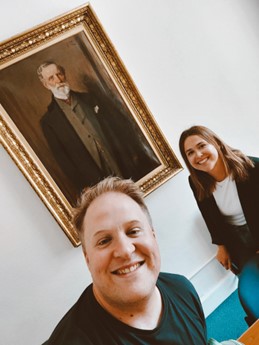
Richard suggested for me to reach out to the Emeritus Bruce and John Usher Chair of Public Health, Dr. Raj Bhopal. I connected with him (I later learned that he did a sabbatical at Gillings in the late 90s –just another serendipitous moment!), and he connected me with my preceptor, Dr. Linda Bauld, who is the current Bruce and John Usher Chair of Public Health and the Chief Social Policy Advisor to the Scottish Government. She is involved in behavioral science research in public health with a particular focus on non-communicable disease prevention and how evidence-based research informs policy (literally my dream!).
I also learned later that Linda works with some colleagues in the Health Behavior Department at Gillings as well (another serendipitous moment). Now, let’s move to the current part of my story!
As I arrived in Edinburgh, Scotland, I was greeted with blue skies and sunshine (very unusual for Scotland). Words cannot describe as to how grateful and excited I am to be here (my colleagues have told me just how infectious my enthusiasm is!), and every day I continue to believe in the serendipity of butterfly effects.

The focus of my work is split into two parts: behavioral science projects in both the Usher Institute and the Scottish Government.
The focus of my work here involves collaborating with Linda’s colleagues from the Scottish Government in building and designing a toolkit for policymakers within the government to use on how they can utilize behavioral insights in their work in policy development. Using my love for graphic design and behavioral science, I am ensuring that the content is engaging and digestible for those who do not necessarily have a background in this field as this toolkit introduces behavioral science and will be distributed widely within the government. More details to come on my next blog post!
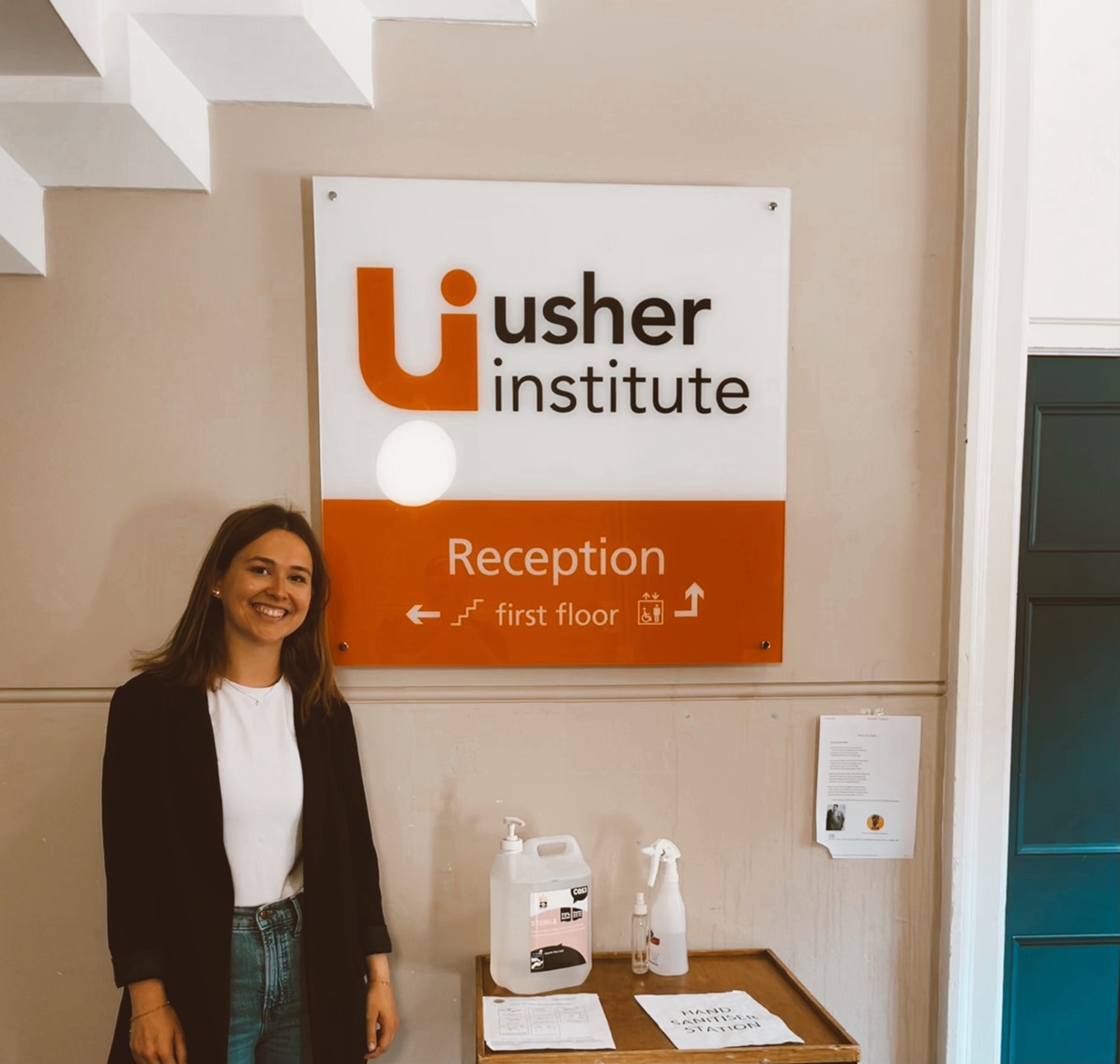
For the Usher Institute, I work with Dr. Fiona Dobbie and her amazing team in behavioral science research, mainly in vaping and gambling prevention among youth. I have consulted with youth in Scotland about their knowledge and attitudes towards vaping as well as conducted literature reviews on current vaping prevention programs for adolescents to inform further evaluation and research on a peer-led intervention. The highlight of this has been going out to a school in Alva, Scotland for a health fair to hand out surveys and learn more about youths’ perspectives surrounding vaping.
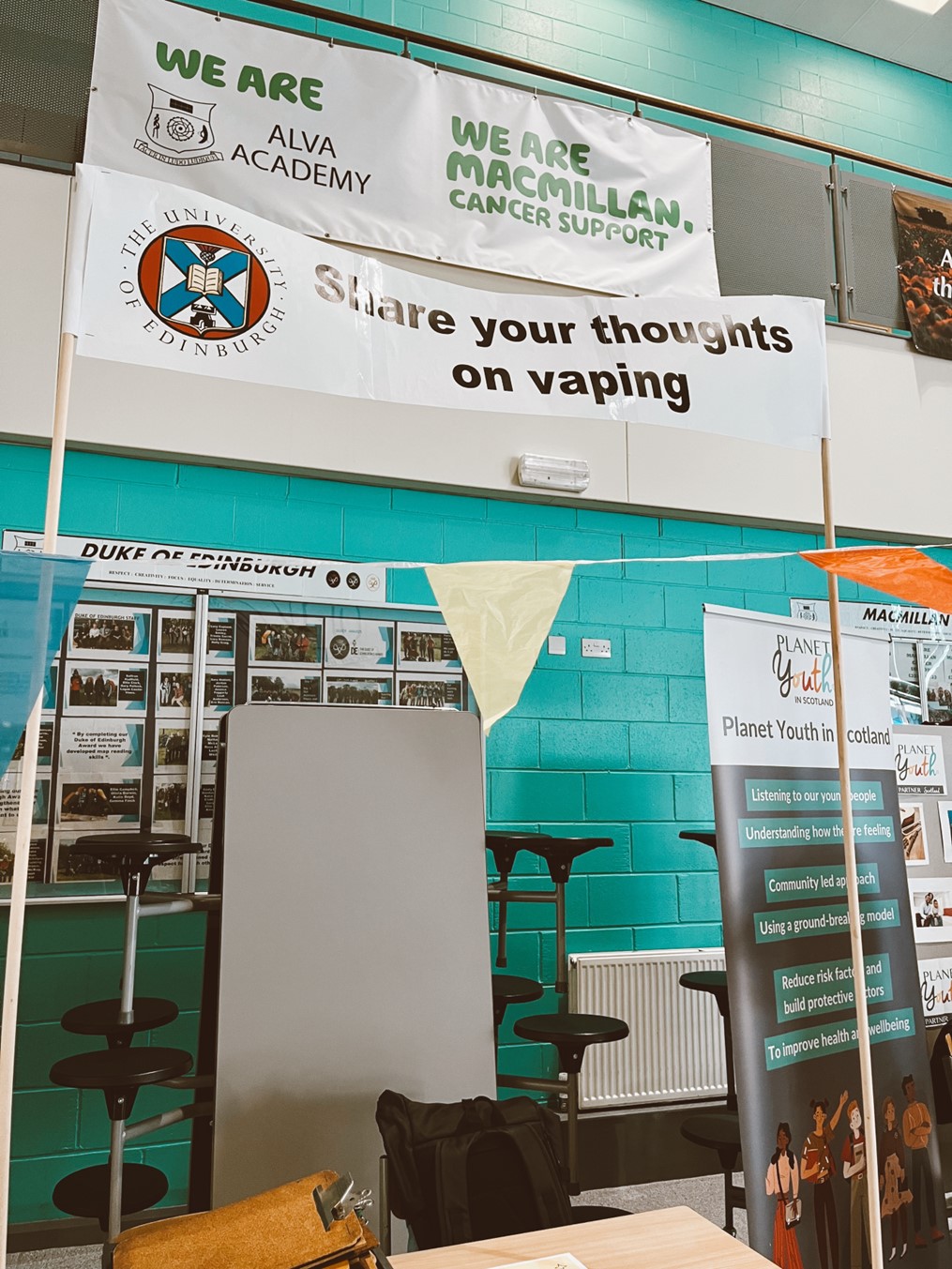
It was a running joke in the office that we got so many surveys filled out because of my Southern accent (even though most kids there asked if I was from Wisconsin! :)) as most of them were not expecting someone from the States to be there! I am also designing infographics and pamphlets for PRoGRAM-A, a peer-led, school-based education program that aims to reduce gambling related harm that Dr. Fiona Dobbie leads. More details to come on this as well!
As chaotic as this story may have been, this practicum experience has further shown me just how wee (or small), seemingly inconsequential actions, happy coincidences, and chance encounters (that eventually lead to lifelong friendships) can lead to a life-changing opportunity, an unexpected twist of fate. I know that my storyline would have been different if my family and I did not go on that tour in 2018…
The End…(just kidding! :))
Haste Ye Back! – Return soon (with a photo of a hairy coo, I promise!)!
Cheers (to happy coincidences!)!
– Sarah

